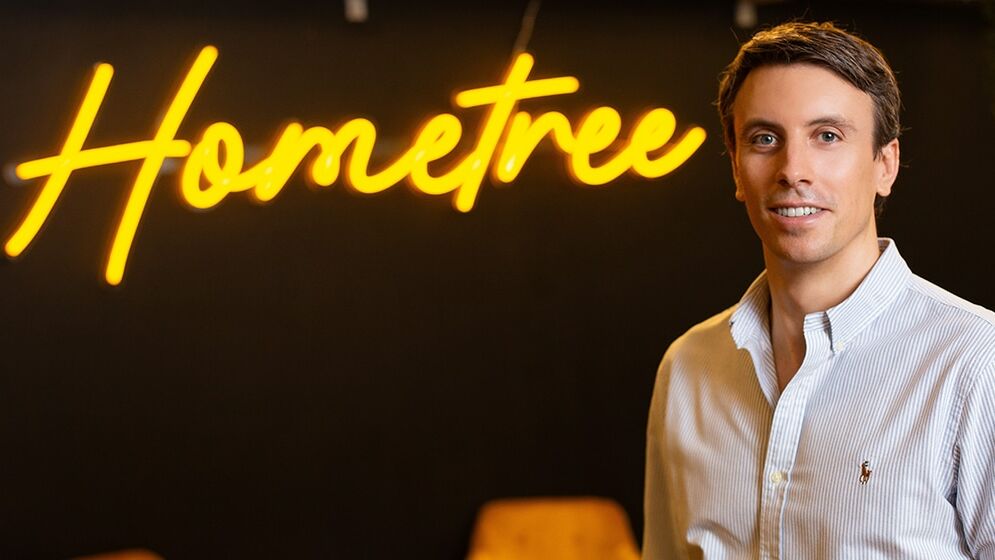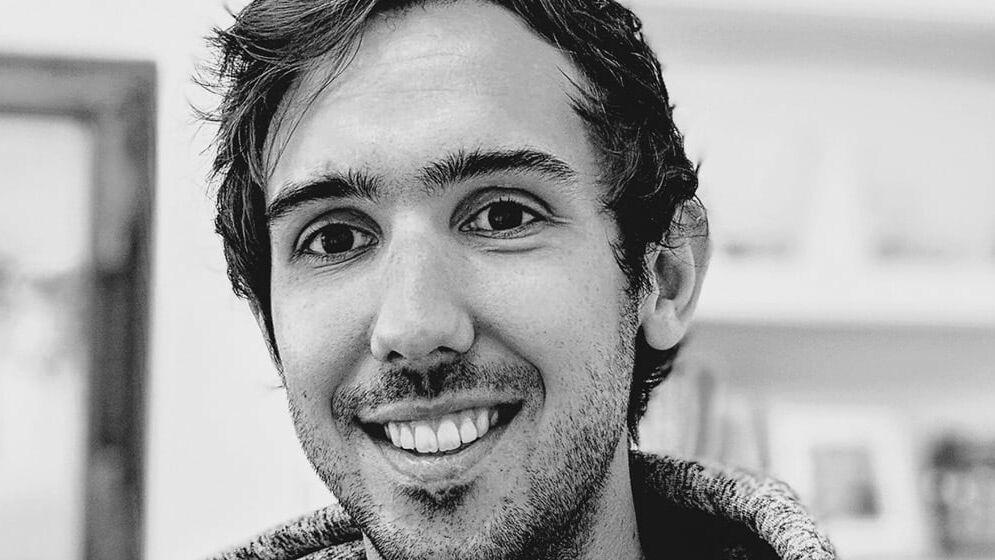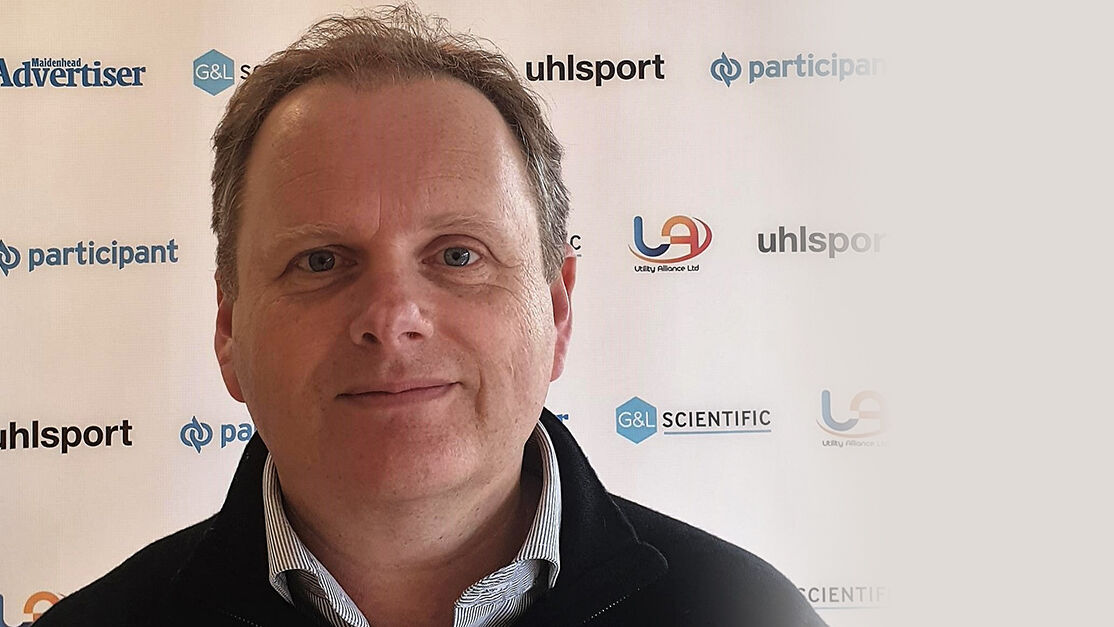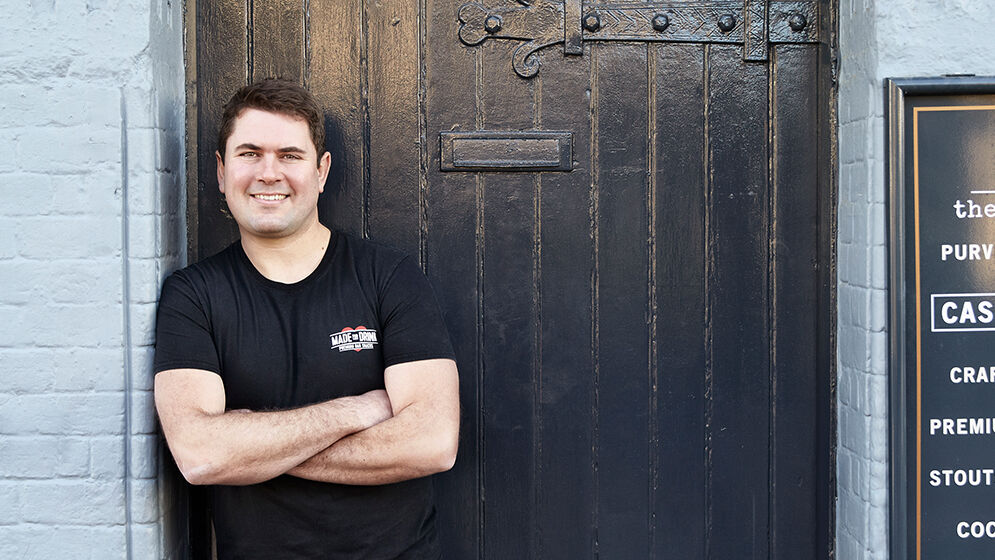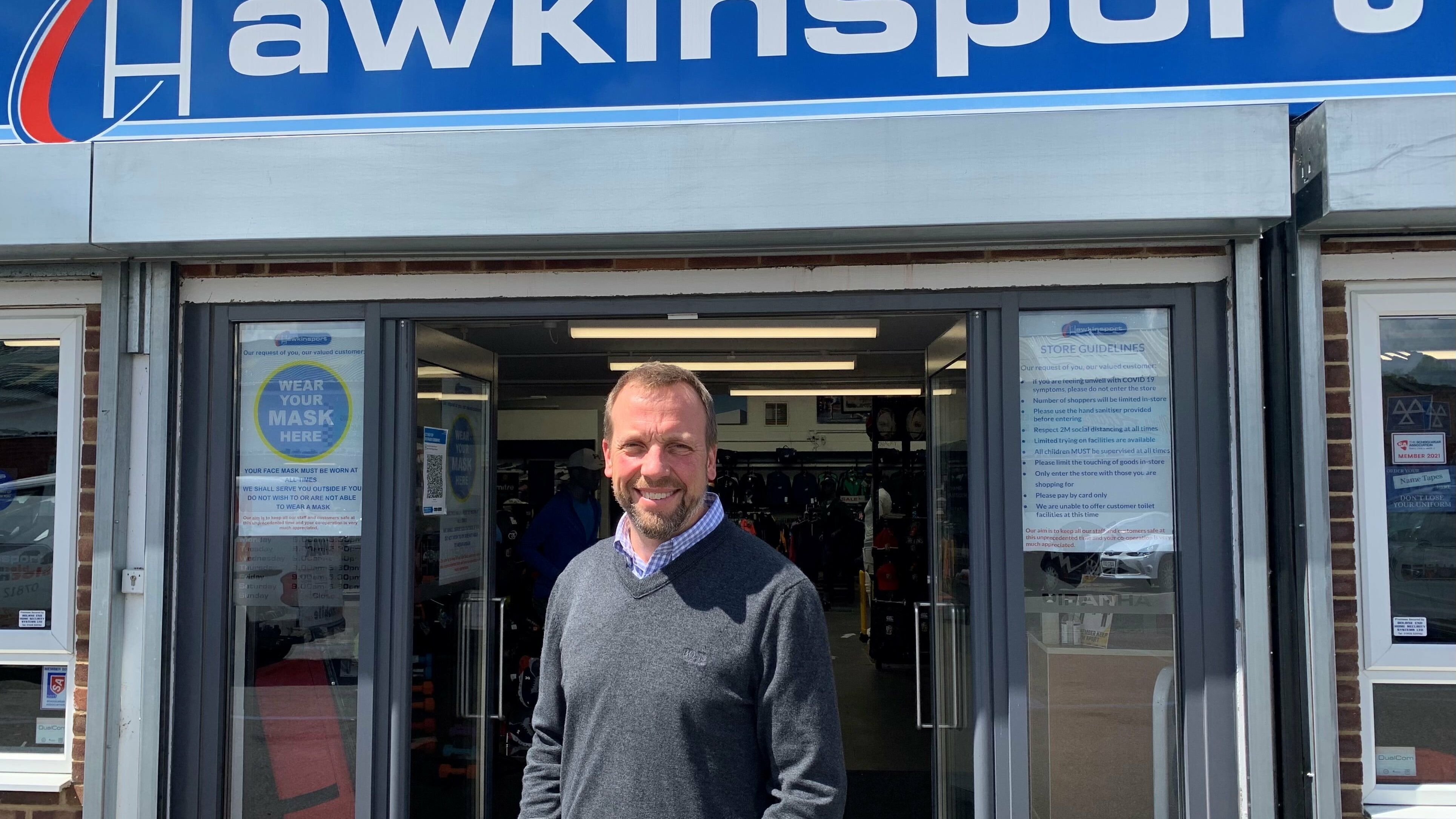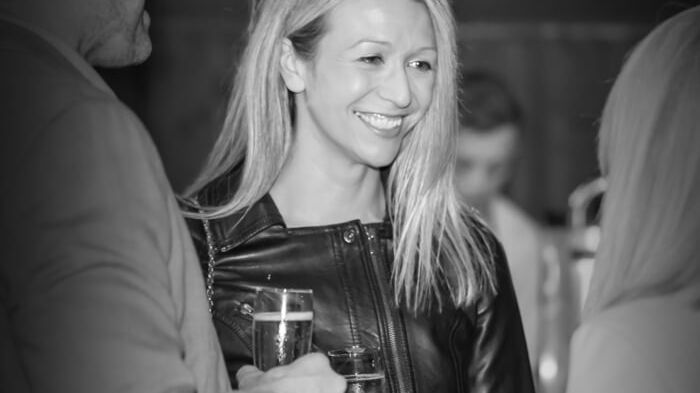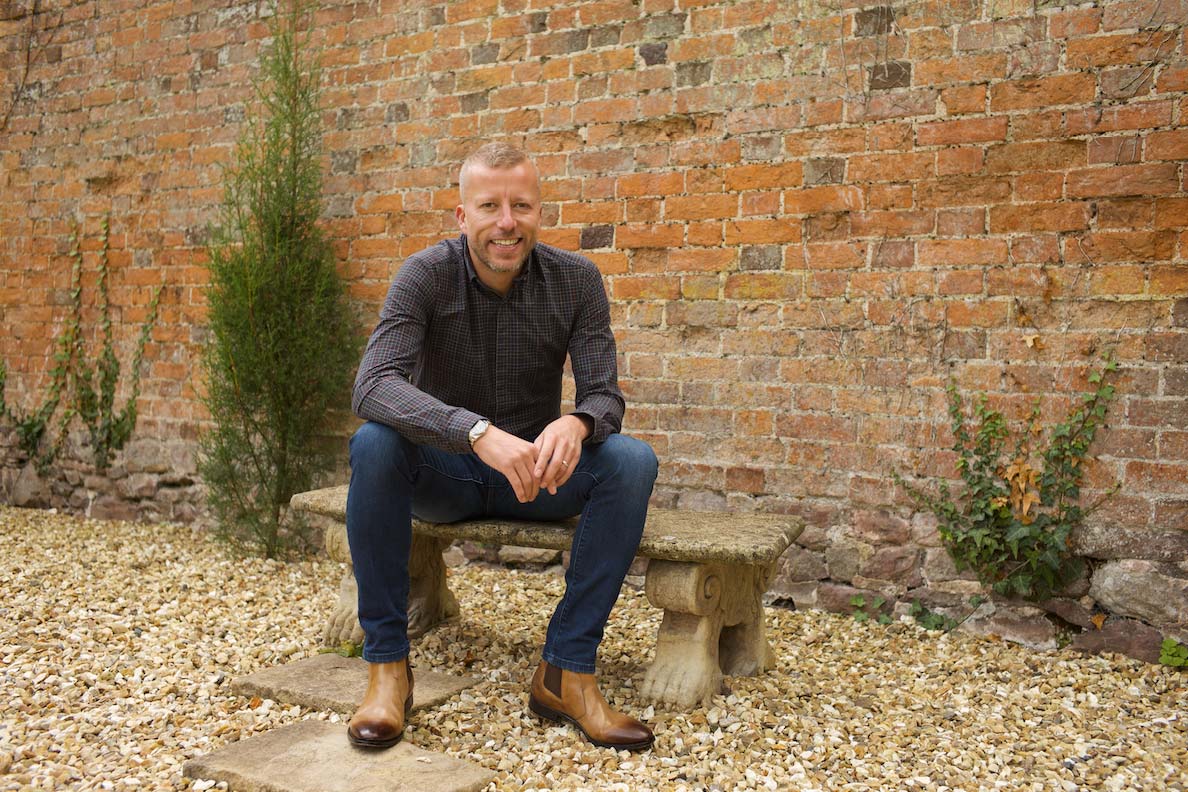
Interview with Stephen Twiss CEO at Lakeshore Leisure Group LTD and Otter Falls
We had a great time catching up with Stephen Twiss, CEO at Lakeshore Leisure Group at Otter Falls. With a history steeped in the leisure sector as, well as having founded FMT Business Angels, Stephen now heads up the Private Equity funded leisure group with big plans for the future, and with his approach to management and passion for customer satisfaction, we fully expect him to get there.
On the back of a challenging year for the whole sector, we really enjoyed Stephen’s refreshingly positive approach to business and some great insights around business and culture.
Otter Falls is backed by Private Equity investor Kings Park Capital.
Moving from employee to business angel is quite a shift – what was the driver for this?
That was circumstance and time led in many respects. In my previous role at Luxury Lodges Estates, we had helped someone set their own business up, they were clearly talented but weren’t quite in the right place financially to do it, so we stepped in gave them some direct support, guarantees and advice and subsequently they were able to set up on their own. It’s still a bit of a departure from that to business angels but it made us think at the time that there were more really talented people out there that we could help.
When I moved on from that business I had the time to pursue it whilst working towards the parks project, so I thought why not.
The consultancy element was a really good experience and being approached by people from outside of my industry was a validation to me that there were broader principles in play and people could gain from my knowledge, experience and advice. I learned loads as well, in particular with seeking out and identifying the right funding partners, which would prove to be invaluable for setting up Lakeshore Leisure Group.
I met some great people, a number of which I am still in contact with and they are following the progress with real interest.
I’ve always followed my gut instinct
Using your knowledge of the sector, it must have been an exciting time when you identified Otter Falls. How did you know this was going to be a good business?
It was a bit of an epiphany. I got home after my first visit to the property and said to my wife “I think I’ve seen part of our future today”. It sounds a bit corny but that’s how I felt about it.
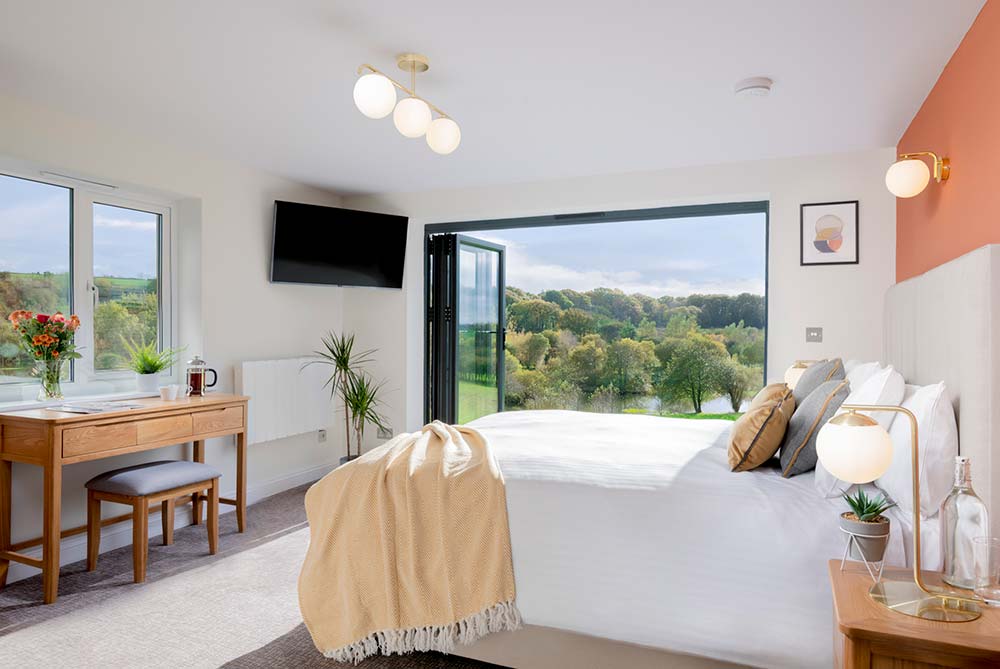
It had a great sense of arrival, incredible location, and a real feeling of ease, which is everything you want a customer to find on holiday. What better than to arrive somewhere, take a deep breath and leave your normal day to day life behind for a while. I knew immediately it was right.
I’ve always followed my gut instinct. I’ve been fortunate in my business life to get some great advice and support from senior people and mentors which has really helped me to develop what you might call technical business elements such as vision, strategy and prioritisation, but ultimately, I feel you still need instincts and lots of passion. I’m certainly very passionate about each one of our acquisitions and the sense of real ownership. Some people are more analytical in the early stages of acquisition but I need to really visualise what it could be like and then post rationalise it and then crunch the numbers later.
Without a unified culture and sense of purpose I don’t believe people can do their best work
And how do you integrate that sense of passion into your culture?
From my experience if you’re leading a business, you can’t automatically expect that everyone in the business will have the same level of attachment and engagement. However, without a unified culture and sense of purpose I don’t believe people can do their best work. In simple terms, when a team is truly engaged there will be higher levels of performance. From a customer’s perspective you can instantly see if an employee is engaged in their role, and conversely you can see someone who is disengaged. Customers instinctively know this through body language, whether people look you in the eye, their tone of voice etc.
Creating engagement and taking a team on a journey can’t be superficial or contrived. At Clawford Lakes, which is currently closed and undergoing major development, we regularly speak as a team about how there will be a moment when we all stand on the top of the hill and look down at what we’ve built together. What a moment that will be! I am lucky enough that they get it and we want to build it together. Because they feel passionate about something that is beyond their direct financial gain, it almost becomes an inevitability.
With our culture, one of the key engagements is that the mission and purpose of the business needs to mean something to the team – and that we can be ‘be proud of everything we do’. In terms of customers if they can feel relaxed and breathe easy, then we’ve achieved our aims. We did an amazing piece of research at Bourne Leisure with holiday home owners and one of them said that when they were driving to the holiday park they felt like they were ‘driving towards the sunshine’, and when they leave they are ‘driving towards a dark cloud’. This really gave me shivers at the time and has stuck with me. That’s what we should do every day and make people feel like that. In terms of ROI, if every customer feels like that about the escape we give them, then we’re going to get there!
Creating engagement and taking a team on a journey can’t be superficial or contrived
What learnings did you bring from your time at Haven and Luxury Lodges to Lakeside Leisure?
There was a core principle at Bourne that was about concentrating on the process rather than the outcome and with a focus on empathy. We are certainly guided by those principals at Lakeshore. With any decisions we make, we consider the impact on guests or on the team. This is a fundamental and is subjective at times and doesn’t always have to be quantifiable. In addition one of our best performing leaders at Bourne simply stated that ‘service drives sales’. Both these points are very simple but these simple principles work so no need to complicate them.
The leisure sector has had the biggest kicking of all in 2020, how have you coped?
March was the worst part: before the lockdown in the first few weeks of it. Like everyone we didn’t know what was happening and that indecisiveness and the unknown was very unnerving. We were planning, for either three or six then nine months of closure. Bearing in mind that we were only a little over three months before we would hit peak season.
Practically speaking for our business, we had no debt as we are private equity funded, so that certainly took pressure off in terms of recovery.
We set to work on planning for the best recovery possible and we did lots of good work as a team, so that we were in a good position. We did need to furlough some of the team in that period, although we were able to retain a number local team members and importantly also retain tradespeople who wouldn’t have got any support from the Government. We were very happy that we were able to support them as a they are a key part of our business. Ultimately, we were able to put the business in a really strong position to reopen. We are fortunate with our parks in that we have acres of space, so we created lots of outside areas such as barbecues and picnic areas so people could be ‘safe but social’. Any safety messages around 2m distancing or hand sanitiser usage we put into friendly language and branded it all so it wasn’t so draconian – the branding and messaging was crucial we feel.
We took the decision not to open one of our sites, Clawford, which was due to open in May, but the other businesses thrived and we were even oversubscribed at Otter Falls. We didn’t discount because we didn’t need to, but we made sure we didn’t inflate our prices due to demand. Customers would know if prices were inflated and I know, that if that were me, I’d remember that – it wouldn’t pay in the long term.
We were also clearly helped by the new market view on the staycation. We’ll see in a year or so’s time how we are faring, but for now our philosophy is that we are still here, and we will still be going strong after the latest lockdown finishes, when many businesses unfortunately won’t. So we are simply grateful for that.
Prior to Covid, the sector has had huge growth in the past decade or so – what has been the main driver in this and do you think post covid there will be a boom for staycations?
I got involved in the industry when I didn’t really know anything about it: I’d never been on a holiday park. As soon as I understood the business model by the mid 2000s, I thought ‘I’d like to own one of these one day’. It might have been a dream at that point, but the model is so solid, particularly with a mix of holiday rentals and ownership. Ownership is a secure form of income and, if you give a great experience, it’s even more secure.
At Bourne Leisure in 2008 we survived well as a business, and then in 2009 we had the best year ever, right at the heart of the recession. This resilience isfinancially attractive and therefore the sector overall became less of an unknown. People in the City were alerted to it and investment in the sector started to increase.
Also, the industry has changed so much since that recession and perceptions of holiday parks have also changed from the days of ‘Hi-de-Hi’, with some great innovation and via some great people. We keep improving that experience. That investment and talent that has come into the industry over the last decade or more. It’s the improvements through innovation that will keep customers’ interest. Post pandemic we should, in theory, strengthen as a sector, but only if there is no complacency and if we continue to innovate for our new audience.
One of our new lodge owners used to go on cruises three times a year, but has made a clear decision to move away from this style of vacation as their only means of holiday or escape. A lodge you own, that you can go to whenever you like and with less chance of disruption, was their specific purchase motivation. We believe we’ll have customers like that joining us over the next few years, but their experience must match their expectation: that of hassle-free escapism.
What part does technology have to play, both in terms of operations and customer experience?
Connectivity is such a major part of life, not exclusive to business, but being able to connect with your team and customers is important. For example, we have seven different WhatsApp groups across the team, which was so valuable during lockdown and is so easy to use. We share ideas, content and it helps with team engagement for sure. It also helps rapid information flow, so in terms of our guest this is important. Technology allows us to connect with our customers in the way that they want to be connected with us. Our customers want ease of experience. For example they come to relax and escape day-to-day life, so they don’t want to be greeted with an iPad and an automated check in necessarily, but they definitely want Wi-Fi in their accommodation! We have invested heavily to get future proof fibre into each unit. Everything’s evolving though: there will be technology next year that we didn’t know we needed yet. Connectivity, and giving your customer what they want when they want it, is key to the overall experience, but I feel this includes not giving them what they don’t want, not being intrusive and not disengaging them as a result.
As a leader what is your point of difference?
I was lucky to have good guidance and support from past management of mine and also some amazing mentors who really put leadership into context for me. A lot of what I do is pinched from other people and moulded to fit myself and my personality, to be honest.
One of the things I think I do well is get to the nub of the issue. I can quickly crystallise thoughts or process them for myself or for the team to help them focus on what is important. You can get lost in business through lots of detail, data, reports, MI etc but, ultimately, we have to focus on what are the most important issues or tasks, and question if we are doing them well. I combine this approach with lots of autonomy – I give people clarity of purpose and then lots of freedom to act around that. If they understand the business purpose and the goals, then I let them go out and interpret that in their own way.
Your growth plans are ambitious. What’s the long-term ambition?
The aim of the business is to create a medium sized holiday park business that is the envy of the industry. So we have a simple mission statement, but there are a couple of phases for our business.
Firstly, we needed to create a nucleus and the foundations of a group, which we’ve done.
We’ve got big development opportunities with our current parks especially with a proposed development that is in planning for 150 lodges and some really exciting alternative accommodation alongside a pool and spa.
With projects like this we are taking parks that are not necessarily on people’s radar and turning them into a location that other operators or investors would take note of and see as really attractive to be involved with. Creating this interest and notoriety will help us to deliver a strong return for Kings Park Capital and set us up for the next phase of growth.
Our acquisition targets are those that have operational growth opportunity or development growth. Clawford is very much a development site as it was a dormant business, whereas Otter Falls and Lakeview Manor provide huge opportunities through operational growth and development.
In addition to developing what we have, we are aiming to acquire five to eight parks with a similar profile, over a five year period.
The right opportunities, coupled with a great PE partner and an engaged team, are what will get us to where we need to be.
The right opportunities coupled with a great PE partner and an engaged team is what will get us to where we need to be.
What advice would you give to any entrepreneurs seeking to raise money through private equity.
When it comes to seeking funding, you need to have real clarity. You must be absolutely clear on your goals, what you need from an investment partner and, crucially, know your business inside out before you get in front of people.
You then have to put yourself in the investor’s position: think about the questions they would ask you and what they would want to achieve, and be really honest about whether your business can get there. They are usually pretty bright people who have vast experience, so provide that clarity without ambiguity.
I sat in front of many investors when supporting other entrepreneurs, and a few times for my own projects and, quite clearly, just a great idea isn’t enough: there needs to be substance and direction, plus a willingness to listen and adapt.
I would also aggressively go in search of the right advice from the right people about things you don’t know!
You’ve got to take a risk in life want to create a business. The passion for that business gets you out of bed in the morning and, without that passion, it won’t work, because some days it’s going to be like swimming up hill. I am doing exactly what I want to be in life right now but, only last week, I woke up to four or five serious challenges to deal with. That’s going to happen, but Lakeshore Leisure Group is so important to me, and the team rely on me, so you face those challenges – and the next day I was over it!
Work life balance? Are you good at it and what are your tips?
I’m not that great at work life balance, actually. The children are a really great anchor in it all, getting me back down to earth with a bump regularly. I’ll get on my bike and pound across Exmoor, whilst laughing to myself to myself about what the children have said: they put things into context for me.
My passion is cycling – road and mountain. If it’s road it’s about climbing, which is a bit sadistic really. We were meant to go to the south of France this year, but that was cancelled unfortunately, but that gives more time to train for it, I suppose.
We have a wire haired Vizsla and he’s built to be outside running, so we go off on Exmoor, him running and me on my mountain bike for a couple of hours and we absolutely love it. Once you’re out there you need to concentrate on what you’re doing, so, it frees my brain up with lots of fresh air, to boot ! Living here it’s a great leveller – when you’re right up on the top of Exmoor it puts it into context, especially when it’s howling with wind. The dog’s looking at you on the way up a climb, as if to say ‘c’mon hurry up’, and then you get your own back on the way down, as you speed past him. It’s a great release.
Who in your past has given you valuable business advice that you still use today, and what was it?
I coincidentally ended up working for a friend of my Grandad’s in the late nineties, John Moulton, and I remember getting very excited receiving my first pay packet. I remember John telling me not to focus on the commission: he said focus on the job in hand, what you need to do well every day, and the commission will just turn up, as it’s a consequence of your actions. I feel that applies to business as well.
I worked, as a GM, for a great guy, Howard Rawlings, at Bourne Leisure. I remember being called out by him on something relating to F&B, where I said ‘I was a bit green’ because it wasn’t my background, and he retorted (with a few expletives) that I’d eaten in enough restaurants and been to enough bars, to know how it should be done!! Ultimately he shot all excuses out of me and I try to work with my experience and my instinct to make a pretty good call on something, even if it’s not my expertise.
Lastly, Marcus Child changed and enhanced some of the things I already had, but very much gave me a way to support a group of people, who will, ultimately, determine our success. His words were many and varied and I think about them most days, and find myself saying them quite often in and out of work.
And finally, where’s your favourite holiday destination?
South of France. I met my wife in Sydney when I was backpacking, so we’d been all over the place. We are very transient in our nature, from where we grew up,to where we met, to where we live, so we never thought we’d go to the same place often. We’ve been very lucky to have been able to have some great holidays over the years, but first choice now would be the South of France. We have booked some bigger properties so that family and friends can fly over to stay with us,but on our last trip we stayed at this amazing place called Cosy Camp! We stayed at Airbnb on the way down, and then camped next to a stunning river for ten days. The children loved it: the girls had never had that experience and they said they’d swap that for Disney anytime! Great destination, we love it and it’s a family goal to have a bolt hole over there at some point. We never thought we’d go to the same place over and over again, but we are hooked.
Guide to selling your business
Your simple guide to helping you maximise the value in your business.
